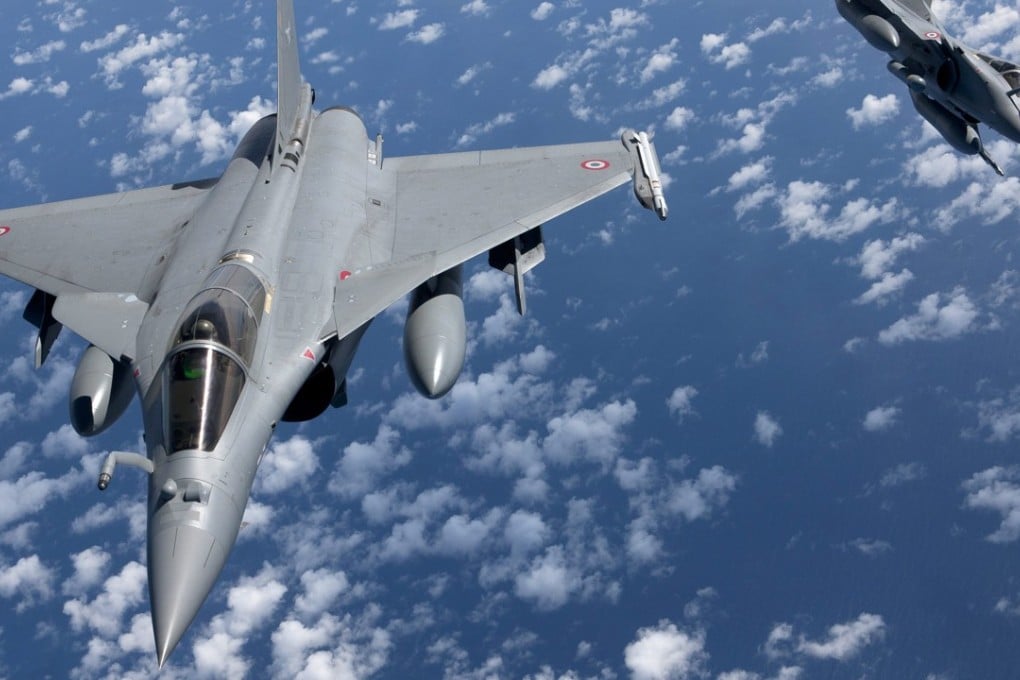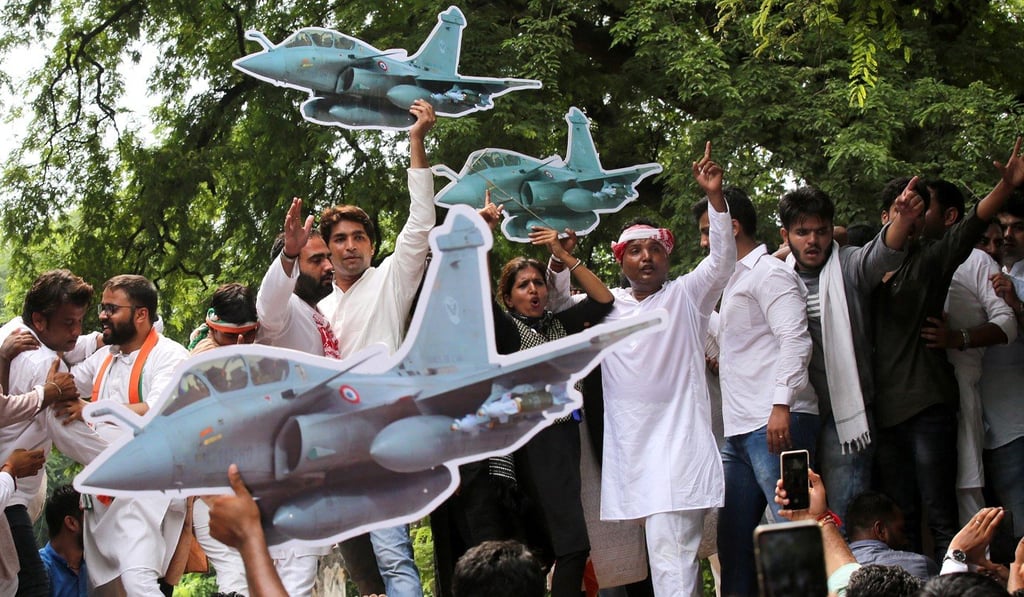How Modi’s Rafale defence deal has left India lagging China, Pakistan
India puts defence preparedness on the back burner as a result of the controversy over the purchase of Rafale fighter aircraft, even as regional rivals continue to arm rapidly

The Indian government, rattled by a vocal opposition campaign that has charged it with financial wrongdoing and endangering national security over the purchase of 36 Rafale fighter aircraft from French company Dassault, is now soft-pedalling the purchase of other weapons badly needed by its overstretched and ill-equipped military.
Defence Ministry sources have ruled out early tendering for the announced purchase of 110 medium fighters, worth an estimated US$15 billion to US$18 billion. This means the Indian Air Force (IAF) must make do with just 31 squadrons of fighter aircraft – 11 short of its authorised 42 squadrons, which planners believe are essential for a “two-front war” against regional adversaries China and Pakistan, if they were to join forces.
Nor is early movement likely on the Indian Navy’s global procurement of 57 fighters, or an aircraft carrier that is to be built in the country. Meanwhile, the US$6 billion purchase of the S-400 Triumf air defence missile system from Russia, which was earmarked to be signed during an India-Russia summit next month, is likely to be postponed.
Also shifted to the back burner is the US$6 billion purchase of six conventional submarines and army equipment such as armoured vehicles and assault rifles.
By contrast, China and Pakistan are continuing to arm rapidly. Beijing is selling Islamabad its increasingly sophisticated fighter aircraft, warships and ground systems, building up Pakistan as its cat’s paw in South Asia. The capability gap between Indian and Chinese armed forces, already worrying for New Delhi planners, is growing inexorably. Even Pakistan, which once feared an existential threat from India, now talks confidently of halting the Indian military without having to trip the nuclear threshold.

